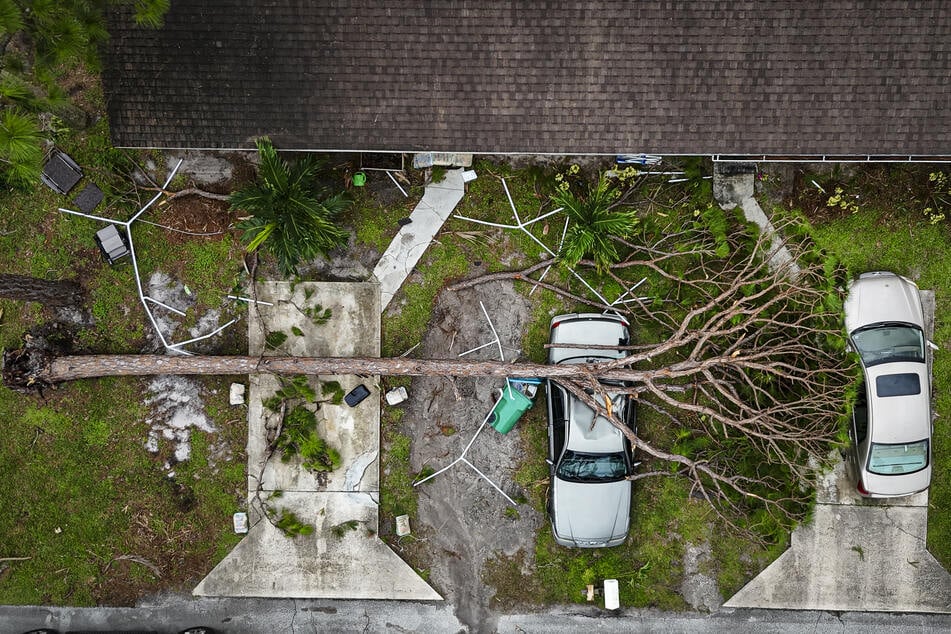It's official: Scientists say Hurricane Milton was made worse by climate change
Siesta Key, Florida - Global warming made Hurricane Milton's wind stronger and its rains heavier, climate scientists showed in a new report.

An analysis conducted by a team of scientists at World Weather Attribution shows that wind speeds during Hurricane Milton were made 10% stronger, and rain between 20% and 30% worse by climate change.
The intensity of Milton, which killed at least 16 people after making landfall Wednesday, increased quickly from a Category 1 to a Category 5 hurricane, before hitting Florida at Category 3.
Warm waters in the Gulf of Mexico directly contributed to the rapid intensification of both Hurricane Milton and Hurricane Helene. According to a study cited by Carbon Brief, such temperatures are made 200-500 times more likely due to climate change.
According to the World Weather Attribution analysis, without climate change, Hurricane Milton "[would] have been a Category 2 rather than a Category 3 hurricane when it made landfall."
This is largely due to a combination of intensified rainfall caused by warmer waters in the Gulf of Mexico, as well as a high wind intensity and Florida's geographical vulnerability.
"Attribution studies on recent dangerous hurricanes in the NA basin show that rainfall from these events were all amplified by anthropogenic climate change," scientists at World Weather Attribution wrote.
"There is also growing evidence that hurricanes are now intensifying more rapidly, becoming more intense, and will continue to do so with further warming, and that storm surges are causing extra damage due to sea level rise."
A rapid study of Hurricane Helene earlier in October found similar results, and predicted that excessive rainfall was made up to 20 times more likely due to climate change.
"That's an astronomical amount of precipitation," said NOAA head Ed Clark at the time. "I have not seen something in my 25 years of working at the weather service."
Cover photo: AFP/Miguel J. Rodriguez Carrillo